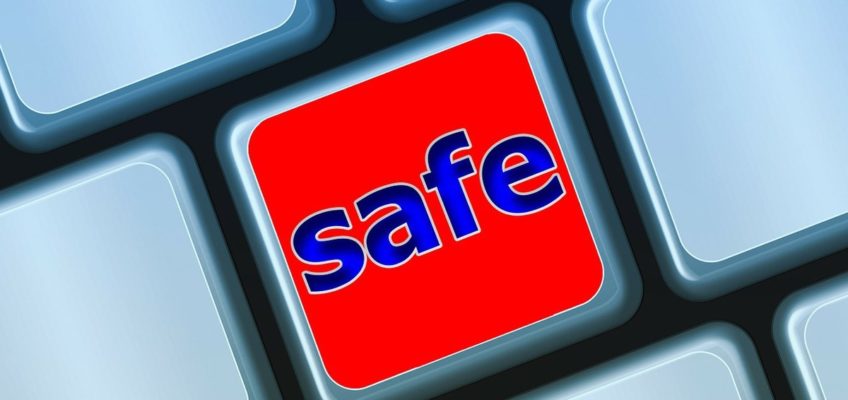Whether you want to avoid targeted advertising, get around geo-blocking or simply believe in the principle of online privacy, here are some ways to keep your data safe.
Protecting your online privacy is important, and data collection by companies and government agencies is highly concerning to many of us Share on XLuckily, the internet is full of free tools that will help you secure your online privacy without spending a penny. While you should avoid free versions of some essential privacy tools like VPNs (virtual private networks), as these could potentially log and sell your data, in this article we look at the various online privacy tools you can safely use for free.
While traditional browsers like Google Chrome and Mozilla Firefox are sufficient for most users, those who are especially concerned about online privacy will want to consider using browsers with built-in security features Share on XBest free browsers for online privacy
While traditional browsers like Google Chrome and Mozilla Firefox are sufficient for most users, those who are especially concerned about online privacy will want to consider using browsers with built-in security features
- Tor Browser. The Tor Browser is an essential cybersecurity tool for maximum privacy when browsing the web. It routes all your traffic through TOR (The Onion Router), a network of servers that make web traffic almost impossible to trace. While Tor is the most secure browser, the major drawback of it is that it can make browsing the web painfully slow. As such, most users limit their usage of TOR to only when they want maximum protection.
- Avast Secure Browser. Although most famous as an antivirus software provider, Avast has broadened its reach to also offer a secure web browser too. The Avast Secure Browser is their answer to issues surrounding not just keylogging and data tracking, but also helping users block out ads during browsing and watching videos online. The browser’s customisable, letting users toggle when to block ads – and how intensively – when to safeguard bank details being typed in, and so on. Avast also claims that their browser doesn’t sacrifice speed for safety.
Best free operating systems for online privacy
While switching from Windows or Mac to an entirely new operating system for online privacy may seem like overkill, it is still a good idea to consider using security-focused operating systems in certain situations – like when traveling abroad in a country with internet restrictions.
- Tails (The Amnesic Incognito Live System) is a Linux Debian-based operating system that routes all connections through the TOR network. When using Tails there is no risk of any internet activity ever bypassing TOR, ensuring full online privacy. It also functions as a live operating system, meaning that you can run it straight from a USB-stick or a DVD – a good thing to factor in if hard drive hogging operating systems are a bugbear of yours.
- Qubes is a free Linux-based operating system that separates all of your programs into virtual machine compartments. This means that if your ‘personal’ virtual machine is compromised by malware, for example, your ‘professional’ virtual machine will still be safe. And of course, keeping professional and personal computing separate in this way is often good to ensure no crossover of sensitive data, passwords or company files from one area of your digital life to the other. Qubes can also run together with Whonix, an OS that uses TOR to secure all network connections.
Best free data leak tools for online privacy
VPNs (Virtual Private Networks) are one of the most important privacy and cybersecurity tools – but they are not all alike. There are two major types of data leak that can expose your internet activity even from behind a VPN, which are WebRTC leaks and DNS leaks. Luckily, these two tools below let you easily check if you are vulnerable.
- WebRTC leak tools. HMA!’s free WebRTC leak test lets you discover if you are vulnerable to having your IP address leaked through WebRTC in just a matter of seconds. The test also gives you instructions on how to prevent WebRTC leaks if you are vulnerable.
- DNS leak tools. Use the accompanying free DNS leak test to check if your DNS (Domain Name Server) requests are being leaked by your browser, and allowing your internet service provider to see your web activity even from behind your VPN.
Best free search engines for online privacy
While Google is by far the most popular search engine, there are some major privacy concerns associated with it. Google does not hide the fact that it makes most of its money by collecting data about its users and allowing advertisers to target their ads using this information. If you are concerned about having your search history and other data collected, consider switching to a more private option.
- DuckDuckGo is a privacy-first search engine. It does not track your search history or allow targeted advertising, allowing you to keep your online activity private from marketers.
- StartPage uses Google’s search algorithm – allowing for great search results – but unlike Google, does not collect personal data or filter search results based on its idea of what you would like to see.
Best free password tools for online privacy
Common and easy-to-guess passwords are a serious security risk. They make it easy for any cybercriminal to gain access to your accounts and expose your data – if not steal your money, too. Creating and remembering secure passwords is hard, but luckily there are many tools available to take the stress away from remembering passwords.
- Although it also has a premium version, users can get a decent amount of cost-free protection out of LastPass when it comes to storing and recalling passwords. Nowadays we are expected to remember more login credentials for more websites and services than ever — yet LastPass collates those into one secure service. Notably, the free version of LastPass still enables users to implement two-factor authentication, as well as having a password generator that removes the potential for forgetfulness, human error or simply being unable to think up an uncrackable password on your own.
- Have I been pwned. Many people reuse their passwords across multiple sites, which is convenient but also a serious security risk. Have I been pwned is a site which lets you enter your email address and then see if sites you have signed up to with that email have been compromised, exposing your login details. If any results come up, you will know that it is high time to change the rest of your passwords.
Should you pay for online protection?
It’s the age-old question – many online users believe that submitting their safety to free tools alone will offer them less protection than paid solutions and tools.
Yet online security is an issue that is always shifting, and relying on the old adage of getting what you pay for isn’t always the best approach. Often, free tools such as those discussed will have everything you need to stay safe in whatever corner of the web you choose.
There are frequently premium options if you want to bump up the support and peace of mind, but there’s no reason to feel as though throwing money at the problem is all that’s required to solve it – there are some fantastic cost-free solutions out there for every netizen today.









